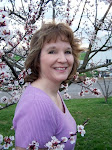Today on Romancing The Book, I will discuss The First Scene
The opening scene in a movie can set the pace for the rest
of the picture. A great beginning captures the audience. The viewer will remain
in place until they find the answers to the questions that the very first scene
sets up.
One of best opening scenes is the one for Kill
Bill, within one minute and twenty-eight seconds you’re hooked. A badly beaten woman is breathing hard; her
bloody face conveys terror as heavy footsteps move closer. Off-screen a man asks
her if she finds him sadistic. Desperation oozes from her with every second
that passes. That's it, we're hooked!
Unlike movies, in a book, the writer cannot begin with music
and sounds effects. Instead we have to rely on setting the scene with
descriptions and just the right words to set a tone. The first twenty words of
a story have the capacity to catapult your book into the stratosphere or to oblivion.
Best Selling Author, Susan
Elizabeth Phillips, writes the following unforgettable opening in the book,
Call
Me Irresistible.
Read this and you will ask these three questions afterwards.
·
Why?
·
How did this come about?
·
What is going to happen next?
It wasn't every day a guy saw a
headless beaver marching down the side of a road, not even in Dean Robillard's
larger than life world. "Son of a" Dean slammed on the brakes of his
brand new Aston Martin Vanquish and pulled over in front of her.
The beaver marched right past, her big flat tail bouncing in the
gravel, and her small, sharp nose stuck up in the air. Way up. The beaver
looked highly pissed.
When a writer begins to write a story, the opening scene can
sometimes take longer to put together than the entire first chapter. Although one may know how to begin to tell
the story, the intro is not always as clear.
Here are some pointers for writing an engaging first scene.
1. Start the story and stop after a
couple of paragraphs. Read the first couple of sentences, if they do not set
the story up then place your curser at the beginning and start again.
2. Sometimes the first paragraphs
are not necessary. Go ahead and write them, if they are telling and not showing
action, then save them for back-story. More
often than not, the second scene a writer pens is the important one.
3. Lastly, talk it out with others,
narrate the first scene and then ask them how do they see this scene? (I got an excellent start to a couple of my
books this way.)
Here is start to the first book of my Protectors series, Desperate Betrayal. Does it
draw you to ask the three questions above?
Emma Blake always felt at home in the
shadows. It was where she lived, always concealing the truth from those around
her.
Now as she hid in the doorway of an
abandoned building, she couldn’t help but compare the current situation to her
life. The dampness of the brick wall behind her seeped through to her skin, as
she pushed further into the dark to avoid being noticed. The putrid smell of
trash and urine barely registered, as she was mesmerized by the scene unfolding
before her.
The scene invoked images of the endless battle forces of dark and light had been waging since the dawn of time.












Great post. I have a hard time with the first sentence of chapter one. I will keep these points in mind.
So true! That first chapter usually has to go!!!
You hooked me!
Love your excerpt. Nice writing, very evocative. And I couldn't agree more - that first opening scene has to be a grabber and sometimes needs to be rewritten several times!!
I'm glad to hear my post evoked thought!
Great advice! Thanks.
I love your excerpt. Yes, it's a definite hook. Great job!